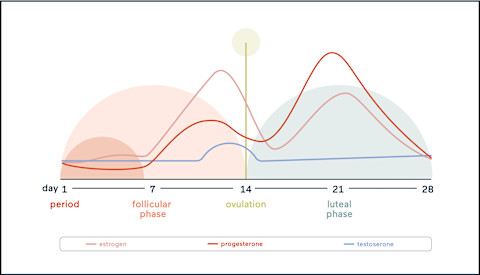ur future in a productive way.
Resilience has been described as the ability to withstand adversity and bounce back from difficult life events. Times are not easy now. How do we develop greater resilience to withstand the challenges that keep being thrown at us? In this interview series, we are talking to mental health experts, authors, resilience experts, coaches, and business leaders who can talk about how we can develop greater resilience to improve our lives.
As a part of this series, I had the pleasure of interviewing Jaime Ellis.
Jaime is a former B2B Tech Marketing Executive. After experiencing extreme burnout, she pivoted her career to help people design new solutions for their careers. Jaime currently speaks on topics around career clarity and productivity, coaches teams and individuals on defining and reaching goals, and is writing her first book.
Thank you so much for joining us! Our readers would love to get to know you a bit better. Can you tell us a bit about your backstory?
I grew up in Northern Virginia, outside of Washington DC, and have been living in New York City for the last decade. I studied Marketing in college and worked in a variety of Marketing leadership roles within the B2B tech space before pivoting to launch my career coaching practice in 2019. I am also writing my first book about creating an environment that nurtures your continued growth (to be published May 2022). Outside of work, I love to cook elaborate meals, travel, and read as many books as I can.
Can you share with us the most interesting story from your career? Can you tell us what lessons or ‘take aways’ you learned from that?
I was completing a formal coaching certification when I read a book called The Genius Habit. It helped me better understand the highs and lows of my career and I uncovered my Zone of Genius: a message excavator. I’ve always had a knack for pulling a clear message out of a mountain of details, which is what drew me to marketing and why coaching felt like a natural shift.
I was an ambassador for this book, telling everyone I knew that they should read it to better understand themselves. That vocalness led to an opportunity to connect with the author, Laura Garnett. She then hired me and trained me on her methods to help more people uncover their Zone of Genius. It was a full circle moment and a great reminder to share where you’re finding inspiration with people around you.
What do you think makes your company stand out? Can you share a story?
One of my very first clients was burning the candle from both ends. She wanted out of corporate life but didn’t know what the next chapter looked like. I helped her come up with an exit strategy from her role, establish service offerings and launch a business within just three months. She called me not long after to tell me about her billings for the month, which were nearly 3x what she made at her full-time job.
That is one of many similar client stories. I think my clients create new career paths rapidly because my approach involves thoughtful reflecting and visioning before solidifying a clear action plan, which we block and tackle together. My message excavating helps them refine what they want to share about their past experiences and the story they’re creating about their future. We then weave these stories throughout their plans to ensure their path forward is reflective of them.
None of us are able to achieve success without some help along the way. Is there a particular person who you are grateful towards who helped get you to where you are? Can you share a story?
I am lucky to have many mentors, friends and family members who have provided me with ongoing support on my journey. I’m going to give an unconventional answer: future me.
Many of us get anchored to goals and stop thinking about the version of ourselves we want to be when we get there. During a guided meditation this year, I visualized the person I am five years from now. Future Jaime seemed to have grown my business and finished my book. But more importantly, I saw someone who was rested, clear, confident, and light. As I’m working towards my goals now, I often consider: is this decision bringing me closer to, or further from, that person?
Future Self work is something I practice with most of my clients to help them generate grounding and an emotional connection with WHO (vs WHAT) they’re working towards.
Ok thank you for all that. Now let’s shift to the main focus of this interview. We would like to explore and flesh out the trait of resilience. How would you define resilience? What do you believe are the characteristics or traits of resilient people?
Resilience is made, not born. It’s the practice of setting intentions, owning decisions, and committing to stay focused on a path forward. It can be cultivated with a solution-focused mindset, which comes from patience, gratitude, awareness, and compassion (for both self and others). Resilient people are also creative in their own unique ways. Having creative outlets to strengthen this part of your brain can unlock more depth to problem solving.
Courage is often likened to resilience. In your opinion how is courage both similar and different to resilience?
I believe that you need to be courageous to be flexible and persistent. When challenges arise, fears and judgements are tempting crutches within reach. It takes courage to push past them, dust yourself off and keep moving forward.
When you think of resilience, which person comes to mind? Can you explain why you chose that person?
My mother. She experienced loss from a young age, losing her mother at just six years old. She grew up with very little, which fostered resourcefulness like learning to sew her own clothes in high school.
My mom was the handy (wo)man in my house. If something was broken, she found a way to fix it. I grew up watching a woman know her way around power tools, something that is mirrored in me today. Some of her creative outlets I remember watching include sewing window treatments, creating stained glass art, refinishing furniture, and building me a dollhouse that was a replica of our home (complete with matching wallpaper). All of which required patience and persistence.
When my dad passed away 15 years ago, she didn’t miss a beat with finding a path forward. Her ability to see a problem and create a solution is one of the most resilient things I’ve ever seen. She has been retired for a few years and is still tackling challenges left and right (and using power tools).
Has there ever been a time that someone told you something was impossible, but you did it anyway? Can you share the story with us?
I was told that my first word was “No”, which makes sense given I’ve always been persistent when I want something.
One story that comes to mind is when I set the intention of starting my life over and moving to New York City. I was in the middle of a divorce and selling my house when I shared that I was moving to a city where I knew no one. I understood it would come with challenges, but I felt drawn to be there for the next chapter of my life. Many people in my life doubted my judgement. I expressed boundaries with those who were not understanding and shared the ways I was looking for support from others. I remember saying that if it ended up being a mistake, it was mine to make and I would move on and rebuild.
Fast forward a decade, I think all the doubters would agree that my intuition was right. I was able to accelerate my career, grow my network and build a life that I love. And if it hadn’t worked out in New York, I trust that I would have found a way to build it elsewhere.
Did you have a time in your life where you had one of your greatest setbacks, but you bounced back from it stronger than ever? Can you share that story with us?
My last full-time job was Vice President of Marketing for a technology company. I was far past the point of burnt out when it was eliminated through a consolidation. I was wrecked emotionally and physically, having lost any capacity for being present, unable to sleep, living in a perpetual state of stress and battling severe joint pain (that needed two surgeries).
For several months, I slept, journaled, meditated and said no to most things. That space led to clarity around who I was and what I wanted to do with the next chapter of my career. And then I started taking steps to build it. Once I gave myself permission to redefine my path, opportunities appeared. I even bypassed the need for surgery as my pain began to subside with self-care.
The vision for my book was born at the point in my journey when I was stepping into my new identity and felt clashes with parts of my old life. We don’t talk enough about the journey after a growth journey, which is an important part of maintaining and building upon your progress. In writing this book, I see that setbacks and challenges in my life have created opportunities for me to help others, which makes those hard times worth it.
How have you cultivated resilience throughout your life? Did you have any experiences growing up that have contributed to building your resiliency? Can you share a story?
I was bullied relentlessly in elementary school. I tried to stop it by seeking help from all the right places. Nobody believed it was as bad as I described, so it endured much longer than it should have. It eventually stopped, but my voice was dampened for a long time. Fearing judgement and invalidation, I stepped into observer roles and noticed patterns in how people communicate. This led to me uncovering new depths of empathy, deep listening and problem solving. I also learned the importance of independence and forgiveness.
Looking back, I am impressed that I didn’t give up on seeking help from my teacher, guidance counselor and parents. I knew what was happening to me was wrong and I didn’t waver from that, pushing on until I found the support I knew I deserved. While that was a painful part of my childhood, I am grateful for the ways it challenged me to evolve. Those learnings that have served me well in my life and career and I look back at that time as a pivotal time of personal growth.
Resilience is like a muscle that can be strengthened. In your opinion, what are 5 steps that someone can take to become more resilient? Please share a story or an example for each.
The below are five practices (that cost you nothing) that will strengthen your resilience.
- Look backwards to look forward. Think back to who you were just 5 years ago. What did that version of you struggle with? What were their fears? How did you get from there to where you are now? This process allows you to see different versions of yourself and primes your mind to think about your future in a productive way.
- Slow down. Cramming your days for the sake of progress is ironically limiting. Space is where ideas are born. Put time on your calendar to just let yourself to just be without stimuli to give your brain time to rest. Think of it like trying to mix something in a bottle that’s filled to the brim. It’s a lot easier to mix when there’s some space to move around. When I decided it was time to write my book, I crammed writing into every spare hour of my day. Each time I sat down to write, I felt so much resistance. When I shifted to build more space into my days, the words started to flow.
- Practice Awareness. Specifically, with your breath and how you spend your time. Regulating your breathing gives you more control when you’re navigating tough times. Noticing which activities fill you up or drain you will increase your visibility into the value of your choices. These two awareness practices will illuminate how you’re showing up (for yourself and others) and make it easier to bounce back when things don’t go as planned.
- Number 4. Invest in your support network. This is your safety net to catch you when things get tough, but it’s not there when you need it unless you’ve put in the time to build it. Curating small groups with the intention of supporting each other is even more powerful. Find people who are looking for accountability, consistency, and support — and then meet with them regularly. I invest my time and energy into curated groups and have seen the power they can generate. We enjoy each other socially, share and celebrate our wins, and show up to help when someone is stuck. Having people in your corner means you don’t have to do it all alone.
- Do at least one kind thing every day. When we do or witness an act of kindness, there’s a chemical reaction in our brains. We’re inspired, our mood is elevated, and we are more likely to do it again because it feels good. Resilience is easier when we feel like our actions matter and there is a compounding effect to intentional kindness.
In my planner, I have a checkbox next to each day to remind me to go out of my way to do something kind for someone else. Sometimes it’s a message to check in, or sending a hand-written note, or offering to help with something. Noticing the intention behind these gestures makes me feel more purposeful.
You are a person of great influence. If you could inspire a movement that would bring the most amount of good to the most amount of people, what would that be? You never know what your idea can trigger. 🙂
I would love to see more gratitude and appreciation flowing to teachers, especially after the challenges they’ve faced from the pandemic. My mother was an English teacher and I saw how she’d light up when former students told her that she made a difference in their lives.
I have unsuccessfully tried to find former teachers to thank them over the years. This led to an idea I had for a platform called Thank a Teacher, where they could opt in with a personal email address to receive notes from students forever. Since building a tech platform isn’t within my current capacity (we’ll see in the future), I hope more people find ways to contact former teachers and brighten their days.
We are blessed that some very prominent leaders read this column. Is there a person in the world, or in the US with whom you would love to have a private breakfast or lunch with, and why? He or she might just see this, especially if we tag them 🙂
Gloria Steinem. After reading her book, My Life on the Road, I am in awe of her story and how she found ways to cultivate courage and integrity at every phase of her life. Her commitment to showing up every day (both for herself and others) is true picture of resiliency.
How can our readers further follow your work online?
Connect with me on LinkedIn: https://www.linkedin.com/in/jaimeellis1/
Follow me on Instagram: @jaimelellis
Website: jaime-ellis.com
This was very inspiring. Thank you so much for joining us!








